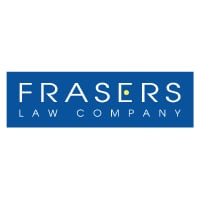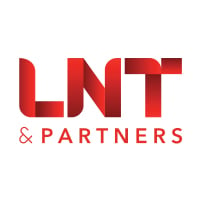

Legal Director | Ho Tram Project Company




Tran Thi Minh Thu
Legal Director | Ho Tram Project Company
What are the most significant cases, projects, or transactions that you and your legal team have recently been involved in?
Over the past year, my legal team and I have been involved in several complex, high-value projects that have significantly shaped our organisation’s strategic direction and operational landscape.
One of the most impactful has been preparing for the introduction of local Vietnamese players into the casino under the amended Decree 03 — a regulatory milestone that fundamentally transforms the industry. Our legal team led the development of a comprehensive compliance ecosystem, including internal control systems, responsible gaming frameworks, robust player-screening procedures, and end-to-end AML protocols. This required intensive coordination with regulators, internal stakeholders, and global advisors to ensure readiness while safeguarding the company’s legal, commercial, and reputational standing.
We also spearheaded negotiations for strategic franchise and brand licensing agreements for the resort’s expansion, including new and amended deals for our “Ixora by Fusion” and “Maia” projects. These transactions required careful structuring to balance commercial ambitions with regulatory compliance and brand integrity, as well as to future-proof the contracts against evolving legal landscapes.
On the real estate front, we oversaw major villa and condotel sales transactions, from drafting deposit and purchase agreements to advising on cross-border investment structures and ensuring compliance with the new Law on Real Estate Business 2023. This work involved managing complex issues such as land use rights, foreign ownership, and regulatory approvals while maintaining commercial agility.
Finally, we led a comprehensive AML framework review, benchmarking our policies against leading jurisdictions such as the U.S., Singapore, and Australia. This involved integrating
enhanced due diligence processes, politically exposed person (PEP) screening, and daily regulatory reporting — strengthening our position ahead of inspections and audits.
How do you approach managing legal aspects during periods of instability or crisis to ensure the organisation’s resilience?
In the hospitality and gaming industry — where operations are highly regulated, reputational risk is immediate, and customer trust is critical — crisis management requires a legal function that is both strategic and operationally embedded. My approach focuses on three priorities: operational continuity, regulatory certainty, and reputational protection.
During periods of instability, such as sudden changes in gaming regulations, unexpected audits, or disruptions like the pandemic, my team acts as an early warning and response hub. We immediately assess how new requirements or circumstances impact daily operations — from casino licensing conditions and AML obligations to hotel guest policies and brand standards — and coordinate with operations, finance, and marketing teams to implement rapid, compliant solutions without disrupting the guest experience.
For example, when regulatory authorities tightened AML reporting obligations and inspection procedures, we proactively revised internal workflows, retrained frontline teams, and redesigned documentation systems to ensure seamless compliance while avoiding costly interruptions to gaming operations. Similarly, during supply chain and staffing challenges, we restructured contractual terms with key partners and introduced legal safeguards to protect service delivery standards across the resort.
Above all, my priority is to translate complex legal risk into practical business strategies. By staying close to daily operations and aligning legal decisions with commercial objectives, we help the company remain resilient, compliant, and trusted — even in highly volatile conditions.
Based on your experiences in the past year, are there any trends in the legal or business world that you are keeping an eye on that you think other in-house lawyers should be mindful of?
The past year has reminded me that the job of an in-house lawyer is no longer about saying “no” at the right time — it’s about asking the right questions before anyone else does. Our role is shifting from being quiet risk managers sitting at the end of the decision-making chain to
strategic navigators who help shape the map in the first place. And in a dynamic sector like hospitality and gaming, especially in a fast-moving market like Vietnam, three trends deserve every in-house counsel’s attention.
First, regulatory scrutiny is no longer a box to tick — it’s a moving target. Data protection, AML/CTF, and responsible gaming are being redefined at a rapid pace, and regulators now expect more than compliance: they want systems that are predictive, technology-driven, and globally benchmarked. That means we must evolve beyond legal theory — we need to understand algorithms, customer data flows, and business models to give advice that is truly strategic.
Second, legal advice can’t live in a silo anymore. Today, risk isn’t just legal — it’s environmental, digital, ethical, and reputational. The future belongs to lawyers who can build integrated governance frameworks that bring ESG, cybersecurity, consumer rights, and sustainability together under one strategic umbrella. In our industry, that means legal is now deeply involved in how responsible gaming programs are designed, how guest privacy shapes brand trust, and how we turn compliance into a competitive advantage.
Finally, as Vietnamese businesses step confidently onto the global stage, in-house counsel must become cultural and legal translators — aligning local realities with international expectations. The most successful lawyers I know are no longer “gatekeepers”; they are bridge-builders, deal-makers, and opportunity enablers who turn regulatory complexity into commercial clarity.
In short, the legal function is moving closer than ever to the heart of business strategy. And for those of us in-house, the challenge — and the opportunity — is to stop being the department that protects the business after the fact, and become the team that helps design its future.
What do you think is the greatest innovation you have enacted in the past year?
Our greatest innovation has been turning the legal department from a “final checkpoint” into a strategic engine that actively drives the company’s growth.
The introduction of local Vietnamese players into the casino — a once-in-a-generation shift for our industry — demanded more than legal compliance; it required a complete reimagining of how law supports business. We built a holistic legal ecosystem from the ground up: a new internal control framework, updated AML and responsible gaming policies, and a player-screening system aligned with both Vietnamese regulations and leading international standards.
We also pioneered a “compliance-by-design” approach, weaving legal thinking directly into business planning instead of adding it at the end. This mindset shift has made the company faster, safer, and more innovative — turning regulatory readiness into a commercial advantage rather than a constraint.
Today, legal is no longer viewed as the department that says “wait.” It’s the team that helps the business say “go” — unlocking new revenue opportunities, strengthening trust with regulators and partners, and positioning us as a first mover in a transforming market.
What is a cause, business or otherwise, that you are passionate about? Why is this?
Beyond the boardroom, I am deeply passionate about empowering foreign investors to succeed sustainably in Vietnam. Having spent more than 15 years advising hundreds of international businesses on market entry, corporate structuring, and long-term operations, I have seen how the right legal guidance can turn ambitious plans into thriving enterprises.
Vietnam is a market full of potential but also legal nuance. Helping investors bridge that gap — by translating legal complexity into clear business strategies — has been one of the most fulfilling aspects of my career. It’s also closely tied to my commitment to Vietnam’s development: attracting responsible investment, fostering global partnerships, and ensuring that business growth goes hand-in-hand with legal integrity and social responsibility.
At a personal level, I am also passionate about raising the standard and visibility of in-house legal professionals in Vietnam. I believe our role is evolving into something far more strategic — one that blends legal expertise with business acumen, cultural intelligence, and forward-thinking leadership. Being part of that evolution is both a responsibility and a privilege.